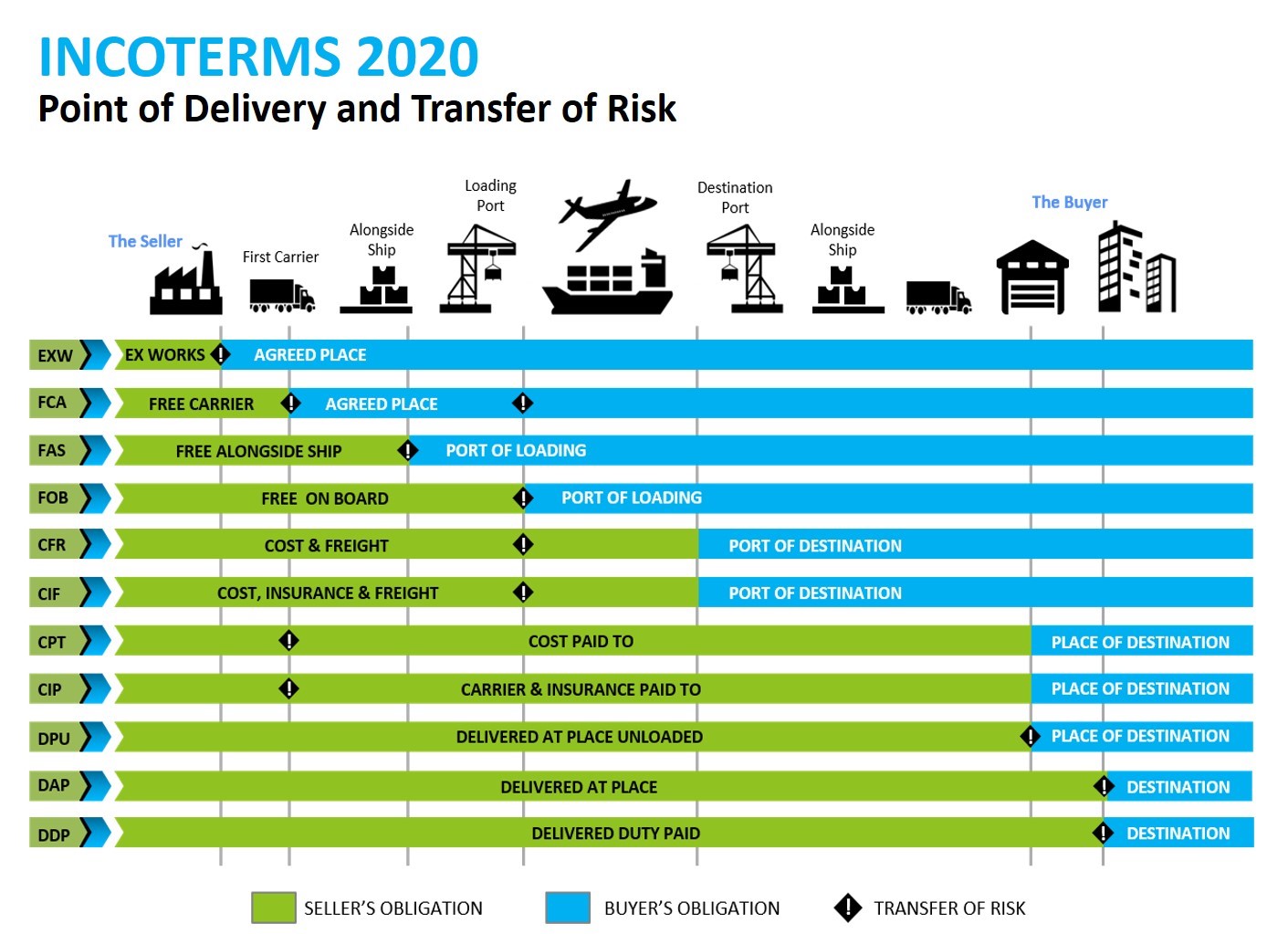What’s New in Incoterms 2020?
The International Chamber of Commerce (ICC) has introduced updates to the International Trade Conditions, now referred to as Incoterms 2020. These changes aim to simplify international trade rules while making them easier to understand for non-native English speakers. The revisions focus on clarity and practicality to meet modern trade demands.
1. Elimination of EXW, DDP, and FAS
The updated Incoterms 2020 removes EXW (Ex Works), DDP (Delivered Duty Paid), and FAS (Free Alongside Ship).
- EXW: Companies with limited export experience often use this term. However, statistics show it is primarily applied in domestic trade.
- DDP: Typically used for small shipments, such as samples and parts, in express courier services or domestic trading.
- FAS: Rarely chosen due to its similarity to FCA (Free Carrier), which provides broader flexibility in delivery locations like ports.

2. Expansion of FCA Conditions
FCA (Free Carrier) is now one of the most versatile terms under Incoterms 2020. It offers flexibility for various delivery points, such as seaports, airports, and warehouses.
- The new version divides FCA into two categories:
- Road Transport.
- Sea Transport. These updates make FCA more adaptable to multimodal transport and help sellers better manage their obligations during goods clearance.
3. Replacement of DDP with DTP and DPP
The traditional DDP condition splits into two new terms under Incoterms 2020:
- DTP (Delivered at Terminal Paid): Sellers handle transportation and taxes until goods reach terminals like airports or seaports.
- DPP (Delivered at Place Paid): Sellers bear costs and taxes until goods arrive at non-terminal locations, such as offices.
4. Adjustments to FOB and CIF Terms
FOB (Free On Board) and CIF (Cost, Insurance, and Freight) remain widely used in international trade. Although ICC recommends FCA and CIP for containerized shipments, Incoterms 2020 now allows FOB and CIF for container shipping due to the increase in containerized cargo volumes.
5. Introduction of CNI
CNI (Cost and Insurance) is a new addition to Incoterms 2020.
- It gives sellers the option to cover insurance costs while avoiding responsibilities for transportation arrangements required under CFR or CIF.
- Similar to FCA, the risk transfers to the buyer at the delivery point in the exporting country.
Simplified and Practical Updates for Trade Efficiency
The updated Incoterms 2020 simplifies trade conditions, making them more practical and easier to understand. With its illustrative examples and user-friendly terms, it aims to enhance global trade and logistics operations.
LAWPLUS.











